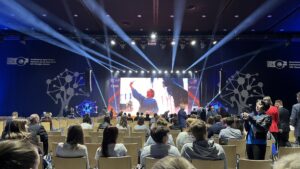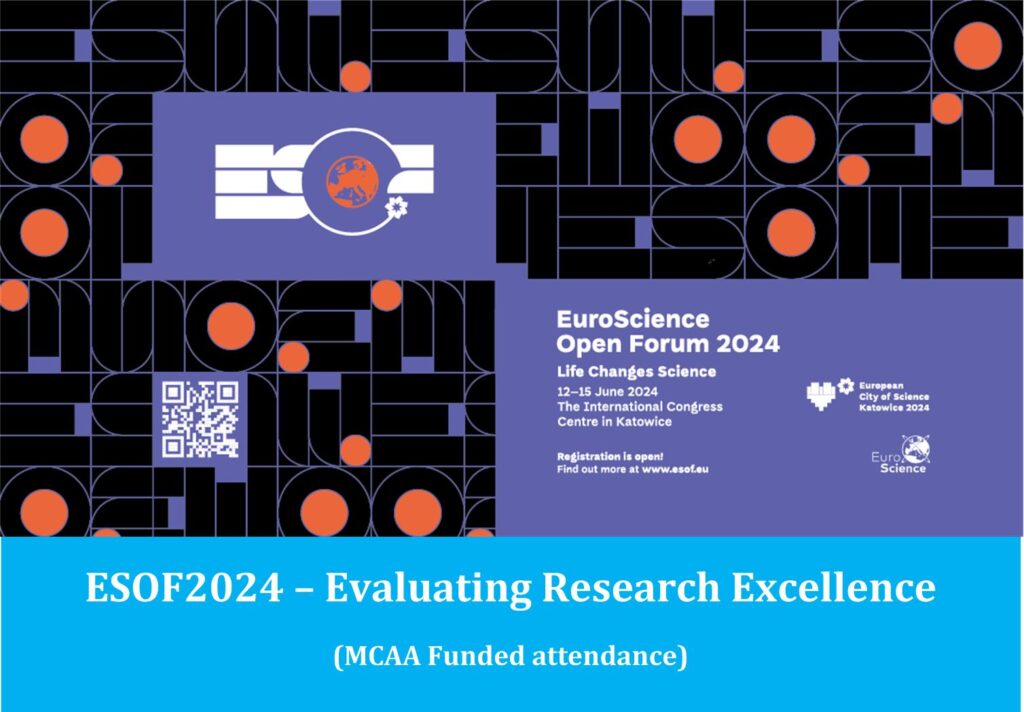Redefining Scientific Excellence: Insights from ESOF 2024 Panel Discussion
Katowice, June 12-15 At the 11th edition of the EuroScience Open Forum (ESOF) 2024 in Katowice, a series of critical discussions including the one titled “Rethinking Scientific Excellence to Improve Research Culture” were held. Panelists from diverse research backgrounds gathered to explore how the concept of “excellence” in scientific research is evolving and how it can be redefined to foster a more inclusive and effective research environment.
Excellence in Context: Leszek Kaczmarek’s Insights
Leszek Kaczmarek, a Professor of Neurobiology at the Nencki Institute in Warsaw, emphasized that excellence is inherently contextual. He argued that while striving for groundbreaking and novel research is crucial, the definition of excellence must consider the unique environments and challenges faced by researchers, particularly those outside top-tier institutions. Kaczmarek’s experience on various international panels highlighted the need for a broader understanding of excellence beyond high-impact publications, shifting towards recognizing significant contributions to the field.
The Need for Clear Definitions: Tobias Philipp’s Perspective
Tobias Philipp, Scientific Officer at the Swiss National Science Foundation (SNSF), discussed the challenges of defining excellence within a major public funding organization. He underscored the importance of transparent and explicit definitions to align funding practices with contemporary values and avoid biases. Philipp argued that while researchers might not need to focus on excellence daily, it is crucial for those supporting research to have a clear and honest discourse about what is valued.
Inclusion and Diversity in Defining Excellence: Irene Castellano Pellicena’s Approach
Irene Castellano Pellicena, a board member of the Marie Curie Alumni Association (MCAA), highlighted the vagueness and bias often associated with the term “excellence.” She called for a more inclusive approach that addresses biases related to gender, race, and disabilities. Castellano advocated for recognizing excellence beyond scientific achievements, incorporating aspects like supervision, mental health, and the overall research environment, which are often undervalued but essential for a healthy research culture.
Complexity and Clarity: Sebastian Dahle’s Observations
Sebastian Dahle, President of Eurodoc and Assistant Professor at the University of Ljubljana, acknowledged the multifaceted nature of excellence. He emphasized the importance of being explicit and clear about how excellence is measured and understood. Dahle likened the complexity of excellence to the concept of complex numbers in mathematics, suggesting that it encompasses multiple dimensions that must be considered in evaluations and assessments.
Diversity and Interdependence: Martin Dominik’s Vision
Martin Dominik, a Reader at the University of St Andrews, stressed the importance of diversity and interdependence within the research ecosystem. He cautioned against assessments that drive conformity to uniform standards, which can undermine the strengths brought by diverse approaches. Dominik advocated for assessments that focus on intrinsic skills and qualities rather than opportunities and privileges, aiming to create a more equitable and effective research culture.
The Future of Scientific Excellence
The discussions at ESOF 2024 underscored the evolving nature of scientific excellence and the need for a more nuanced and inclusive approach. By recognizing the diversity of research contexts and promoting transparency and inclusivity, the scientific community can foster a research culture that better aligns with societal needs and values. The forum’s emphasis on redefining excellence reflects a broader movement towards creating a more dynamic and responsive research environment.
More details about the conference can be found on the event page.




